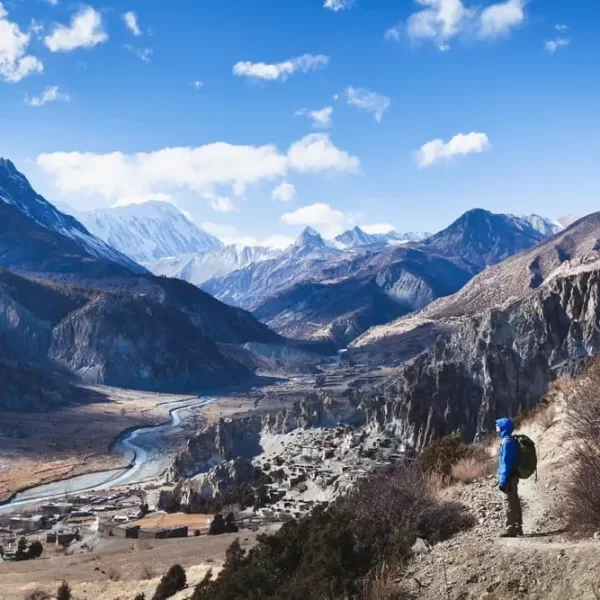We’re sure to say that Covid-19 shook everybody’s world. Since the beginning of the pandemic, many people have been laid off, while others started working remotely. This changed the way most employees work. Although they didn’t necessarily become digital nomads, they’re now working like one.
A digital nomad’s life is full of adventures and traveling. That’s the whole point of becoming a digital nomad, right? The Covid-19 pandemic has definitely influenced their dynamic. They’re not allowed to travel freely everywhere they want. Many countries have migratory restrictions; others don’t.

Table of Contents
What’s the future like in a post-coronavirus world? Let’s find out!
Some Countries May Have Restrictions
During the pandemic, most countries have gone back and forth with quarantines, so it’s pretty challenging to travel during Covid-19. We now know it’s important to check each country’s regulations regardless of the disease to travel without any complications. Besides, it’s hard to predict the influx of infected people, so it is crucial also to be aware of the news when traveling to avoid catching the disease.
In a post-coronavirus world, most countries might continue to have restrictions like having to test for Covid or getting vaccinated. It could become one of the things to do before traveling.
New Developments in Communication
With the advance of the pandemic, most companies started to embrace remote work. As a result, a tremendous number of people started using video-conferencing software to hold meetings. According to BBC, the video-conferencing company Zoom Cloud Meetings increased sales drastically due to the coronavirus outbreak.
Of course, since millions of people were using Zoom as their communication method, many people started to be concerned about security issues. The company was aware of their concerns, so it invested in updating its current cybersecurity system to improve the user experience.
With an improved security system, everybody is safe when running their conferences because this will avoid any data breaches. We could say that this is one of the positive things about a post-Covid world. Besides Internet access has also increased during Covid-19. Places with a poor Internet connection are now having better access.
Many More Employees Are Going Fully Remote
According to Hired’s State of the Salary report, most surveyed employees would prefer to go entirely remotely after Covid-19. Working from home is more comfortable than working at the office; they can spend time with their families and even work in their pajamas. Now, how does this affect the future of digital nomads?
Most digital nomads stay in cheaper cities, so their salary is higher, and they have more economic capacity. However, since most people work remotely, companies have decided to implement a new payment method: location-based salaries. Some of the companies that are following this movement are Facebook and Twitter.
What to Expect Once You’re Able to Travel Normally
Once people start traveling as they used to, it’s probable that we will see more people joining the digital nomad community. These days companies that depend on remote working Travelers are on pause. One of these companies is Wi-Fi Tribe, but there are many others. Once travel opens back up, these companies will be back on track.
In addition, flights and accommodation will probably become more affordable at first. So, if you’re a digital marketer or a software developer trying to live your dream as a digital nomad, you’re probably going to have a good start in a post-Covid world.
Securing Your Visa
As if getting the money for traveling and accommodation wasn’t challenging enough, you also need to deal with your visa. Most countries have a tourist and work visa, but they don’t fit your lifestyle.
Most work visas take from two to seven months to be approved (or denied), so it’s a long waiting period. On the other hand, a tourist visa doesn’t fit your lifestyle because you’re not only there for pleasure. However, it’s a better option compared to the work visa.
It’s essential to set this up before going entirely remotely as a digital nomad. Yet, there is another solution that might help ease the visa problem: remote work visas. Not all countries offer this type of visa, but it’s much simpler to do this than the regular paperwork.
Which Locations Are Offering Remote Work Visas?
Although this movement is at its early stage, many countries have joined the initiative. This visa allows digital nomads to stay for a six-month (or more) period while still working as they usually do. To apply for this type of visa, you need valid health insurance, money to pay the visa, and proof you have sufficient funds to survive during your stay. Here are some of the locations that joined the remote working visa movement:
- Bermuda
- Barbados
- Estonia
- Georgia
Staying Safe is our Priority
If you have the motivation to become a digital nomad after Covid-19, you should not forget about safety. All situations are momentary, and they eventually end, but it’s essential to take care of your health even though you’re now able to travel.
Use your mask, sanitizer, and always speak to people at one meter of distance. Maybe we’ll already have a vaccine by the time you start your journey. Covid-19 changed our lives forever, and we’re not going back to the previous normal—we’ve created a new reality.















There is 1 comment